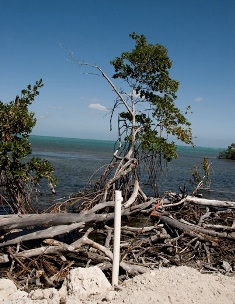Archive for August 13th, 2010

Digicel introduces 4G broadband to Jamaica
(Jamaica Observer): Telecommunications firm Digicel is about to unveil its 4G Broadband offering in Jamaica. It already offers a GSM service in 32 markets across the Caribbean, Central America and the South Pacific. Digicel operates WiMax and Broadband networks in five of its markets, namely, Jamaica, Haiti, Cayman Islands, Barbados and Tonga. This new service will not be offered on mobile handsets but for use with laptops, PCs and netbooks. The idea is to leverage its infrastructure in Jamaica, its customer base of 2 million customers and to offer a cost-effective broadband service which can be used anywhere.

Levers not facing deportation
 (CNS): Despite what the former Grand Court judge has described as misleading headlines in the local press, Priya Levers told CNS on Friday that she was not being asked to leave the country by immigration. Having previously been on a government contract, Levers has had her immigration position addressed and has been given a reasonable period of time to get her affairs in order and decide what she will do next. Levers was removed from the bench by the governor last week following the Privy Council’s ruling, effectively terminating her employment. However, Levers, in accordance with the immigration law, is in a position to remain on island as a visitor.
(CNS): Despite what the former Grand Court judge has described as misleading headlines in the local press, Priya Levers told CNS on Friday that she was not being asked to leave the country by immigration. Having previously been on a government contract, Levers has had her immigration position addressed and has been given a reasonable period of time to get her affairs in order and decide what she will do next. Levers was removed from the bench by the governor last week following the Privy Council’s ruling, effectively terminating her employment. However, Levers, in accordance with the immigration law, is in a position to remain on island as a visitor.
“I see that Brent Fuller is a fan of mine,” Levers said in regard to the story on the website of The Caymanian Compass. “However, the headline is rather misleading. The immigration department has treated me in accordance with the law as well as with courtesy and I have been given sufficient time to address my personal affairs and to consider my future.”
Levers, who has a home here in the Cayman Islands, one in Jamaica and one in her native Sri Lanka, said she has many things to consider at present, not least the very recent death of her brother.
“I have recently lost my brother in Sri Lanka but because of the tribunal I have been unable to properly grieve and deal with his affairs, but now I shall be turning my attention to that before I make any decisions about my own future,” she stated, adding that she had faced a long ordeal and now had many things to consider.
Check back to CNS on Tuesday when the former judge talks candidly about the impact of the tribunal and the findings of the Privy Council.

India rejects superbug links
 (CNN): India has rejected findings of British scientists about a new form of drug-resistant "superbug" infecting patients who have traveled to the South Asian nation for treatment. The Indian health ministry insisted in a written statement Thursday that such organisms were present universally. "[T]his is a phenomenon which occurs in nature — in the environment, may be intestines of humans and animals universally. There might be billions of such happenings at any moment," the ministry said. The medical journal, The Lancet, said this week that tourists seeking treatment in Asia are bringing home a dangerous type of bacterial infection that’s resistant to nearly all known antibiotics.
(CNN): India has rejected findings of British scientists about a new form of drug-resistant "superbug" infecting patients who have traveled to the South Asian nation for treatment. The Indian health ministry insisted in a written statement Thursday that such organisms were present universally. "[T]his is a phenomenon which occurs in nature — in the environment, may be intestines of humans and animals universally. There might be billions of such happenings at any moment," the ministry said. The medical journal, The Lancet, said this week that tourists seeking treatment in Asia are bringing home a dangerous type of bacterial infection that’s resistant to nearly all known antibiotics.

Navy ship to pick up disaster relief supplies
 (CNS): A Royal Navy ship is arriving in Grand Cayman on Monday to pick up 2,000 shelter kits from the local disaster relief supplies in order to maximise its ability to respond quickly and when most needed, should any overseas territory be struck by a hurricane, the Governor’s Office has announced. Scheduled to visit between the 16 and 18 August, the RFA Wave Ruler will load some of the UK’s Department for International Development (DFID) supplied disaster relief stores from the Cayman Islands’ Red Cross managed warehouse. These stores consist of shelter kits for up to 2,000 families; another 4,000 kits will remain on Grand Cayman.
(CNS): A Royal Navy ship is arriving in Grand Cayman on Monday to pick up 2,000 shelter kits from the local disaster relief supplies in order to maximise its ability to respond quickly and when most needed, should any overseas territory be struck by a hurricane, the Governor’s Office has announced. Scheduled to visit between the 16 and 18 August, the RFA Wave Ruler will load some of the UK’s Department for International Development (DFID) supplied disaster relief stores from the Cayman Islands’ Red Cross managed warehouse. These stores consist of shelter kits for up to 2,000 families; another 4,000 kits will remain on Grand Cayman.
The RFA Wave Ruler, which last visited the Cayman Islands to help the Brac after Hurricane Paloma in 2008, is currently on duty as part of the Royal Navy’s Atlantic Patrol Task (North). Her primary role is to provide support to the British overseas territories in order to reinforce the UK Government’s commitment to the region. This role includes providing assistance in the event of a natural disaster and the kits that the navy is picking up will add to the equipment already carried on board.
Whilst at sea, the Wave Ruler conducts maritime patrols, working with various agencies and nations, particularly aimed at countering drug trafficking in the Caribbean region.
While she is docked in Grand Cayman the commanding officer, Captain N A Budd, will host a VIP luncheon onboard for the governor and Cabinet members.
In the release from the governor’s Office, Captain Budd was quoted as saying, “Our visit will reinforce our excellent long-standing relations with the people of Grand Cayman and will serve to further enhance our disaster relief capability. Wave Ruler is in the Caribbean specifically to support UK Overseas Territories. We are well placed to provide first aid humanitarian and technical assistance, with an extensive range of disaster relief stores and on-board logistics capable of providing food, water and shelter, utilising well trained personnel should this be required,”
RFA Wave Ruler is a Fast Fleet Tanker and was built in Govan, Glasgow, entering service in 2002. She has a displacement of 31500 tonnes, and is 196.5 metres long with a beam of 30.4 metres, a draught of 10 metres and capable of speeds up to 21 knots. She is a modern double hulled tanker and able to operate in all climates including icy waters The vessel can issue 16000 cubic metres of diesel and aviation fuel and has a flight deck & hangar to support helicopter operations.
The ship has a crew of 80 British Royal Fleet Auxiliary seafarers, with accommodation for additional 22 Royal Navy personnel when carrying a helicopter.
In recent years, RFA Wave Ruler has seized approximately 11 tonnes of drugs during counter narcotic boarding operations in the Caribbean area and has conducted a number of high-profile disaster relief operations.
The Royal Fleet Auxiliary is a flotilla of 16 replenishment and logistic ships with just over 2000 personnel, operating worldwide in support of the British Armed Services, primarily the Royal Navy.

Education reform and its enemies
During the political era of Mr Truman Bodden and Mr Benson Ebanks the country’s student body was subjected to minor changes every eight years without any real education reform. What these gentlemen possessed was a clear vision for the country’s economic growth: they took advice from the experts, assessed and managed the threats and ensured stability.
The minister of education leading up to the 2000 elections was Mr Truman Bodden; the minister of education following the 2000 election was Mr Roy Bodden, then Mr Alden McLaughlin and now Hon Rolston Anglin.
Now, during the 80’s and early 90’s the children in this country attended school together with little or no segregation. I, along with many other Caymanian children, attended schools with children of migrants and today continue to be afforded the benefits of those relationships. Sadly, as the country’s wealth grew, so too did our desire for segregation.
My recollection of the first real attempt at education reform was during the last term of Mr Truman Bodden when he introduced Public and Private Partnerships in Education (PPPE), the development of a National PTA, the inclusion of parents in strategic planning and attempts to align the curriculum with corporate Cayman’s labour needs. Once Mr Roy Bodden became the minister responsible for education, he changed the name of PPPE to ITALIC, issued an education policy (read an excerpt), investigated why Caymanian teachers were migrating to other professions, withthe most notable area of improvement being that of increased availability of scholarships.
However, before the real reform could take effect, the UDP and this minister were removed from office in the 2005 election and Mr Alden McLaughlin, under the PPM administration, became the minister responsible for education. Mr McLaughlin set out on a very broad reform of our education system, including the redesign of the plants, teacher qualifications, adult learning villages using the plants in the evenings and nights, and converting the George Hicks High School (GHHS) campus to a technical and vocational school. The cost, the massive change, the inability to “sell” the benefits to the masses, the heavy criticism from the talk shows and opposition resulted in this massive education reform being one of the issues debated during the 2009 election and Mr McLaughlin was replaced by the now minister, Mr Anglin. The resounding comment from the general public was, “Children can learn under trees, we do not need these expensive schools.”
The citizens of this country have been crying out for a technical and vocational school for the last thirty to forty years. However, until recent years, everyone wanted their child in a white collar job within the financial industry. Today, we still refer to persons we “think” should be afforded vocational training to be the “non-academic” student. A mistake.
Many of us have not evolved from the “farming” culture of producing children to work on the farm, while I have witnessed a great change in culture as it relates to education, today, there are still too many of us seeking to secure our children a job after high school to help with paying utilities, assisting with mortgages and ensuring the travel and “keeping up with the Jones’s” lifestyle is maintained. As parents, we need to focus on preparing our children for college, developing technical skills, developing them to become independent adults – not preparing our children to become a source of funding our lifestyle.
We do not have sufficient parents discussing college options with their children, career paths beyond college, and setting aside a small percentage of our income to pay for their college cost. Every year there are scholarships offered by the private sector that do not receive applicants. Why? The most common response to that question has been unawareness. If that is true, my question then is, what have you, as a parent, been doing in preparation for your child’s college for the last 18 years?
As parents, it is our obligation to begin to discuss the education process, including college, with our children at the age of 1 year old (my initial thoughts were 10 years but I have been corrected by an expert in education). We must continue to have these discussions and incorporate their teachers in these discussions as they progress through their education. We must ensure that they do NOT feel obligated to repay us for their education but have a sense of loyalty to their country and the generation of Caymanians following them. This is our obligation as parents.
So, education reform has been occurring for the last twelve years and with each attempt the minister responsible has been punished.
Is the current minister now reluctant to advance our education system? Have our voting actions caused reformers to be fearful of reform?
I therefore conclude that the enemies of education reform are the voting public – the parents. If we refuse to sacrifice our wants to secure our children’s future, we have failed as parents.
We must honestly answer the following questions:
1. Do we desire greater opportunities for our children?
2.Are we contributing a small percentage of our income to our children’s future academic needs?
3. Do we want our children to stand as proud, qualified citizens with the self esteem to be independent thinkers and to create progress for our country?
4. Are we our children’s blessings?
5. Do we dress them properly for school?
6. Are we teaching them good morals and manners?
7. Are we proud of them?
8. Do we have a strong relationship with their teachers?
9. Do we value the role teachers’ play in their development?
10. Are we spending the time necessary to develop well rounded productive citizens?
If you have answered no to any of these questions, like me, you must now commit to the relevant changes to improve the future of our country by securing a better future for our children. No one is perfect; perfection is a journey that requires assistance from others and lots of time, so take your time and enjoy the ride with your children.
Immigration, education and employment are issues we, the citizens – ALL the citizens of this country – need to debate publicly. This forum allows us to do so, anonymously if necessary, so let us do just that. Debate these issues and seek consensus. Or not!
Auditor plans Xmas report
(CNS): The new auditor general has revealed that he intends to meet the audit office’s legal obligation to produce an annual report on government finances before Christmas, regardless of whatstatements have been submitted to the office. Since the implementation of the Public Management and Finance Law there have been no annual financial reports on the public purse because of the failure of so many government entities to complete their own financial reports. The last time a full set of accounts on public spending was published was for the financial year 03/04. However, Alistair Swarbrick said yesterday that he would be presenting the Legislative Assembly with a consolidated financial report up to 2009/10 before 15 December of this year, regardless of what has actually been presented.

Police call for witnesses to cyclist hit and run in June
 (CNS): Following revelations this week that one of their own patrol cars hit a cyclist this month, police are now calling on the public to help them find a hit and run driver who knocked over a cyclist on Eastern Avenue in George Town in June. No reports of this incident were made to the media at the time. Officers from the traffic department say that Mike Allen Jervis was hit at around 3am on Sunday 27 June and received serious head injuries. Police already have information from one witness, who says he saw two cars travelling on Eastern Avenue and heard a collision but was not sure which car hit the man on the bike. Police recovered a left side wing mirror at the scene, which they say belonged to a green Honda Sabre. (Picture courtesy of News27)
(CNS): Following revelations this week that one of their own patrol cars hit a cyclist this month, police are now calling on the public to help them find a hit and run driver who knocked over a cyclist on Eastern Avenue in George Town in June. No reports of this incident were made to the media at the time. Officers from the traffic department say that Mike Allen Jervis was hit at around 3am on Sunday 27 June and received serious head injuries. Police already have information from one witness, who says he saw two cars travelling on Eastern Avenue and heard a collision but was not sure which car hit the man on the bike. Police recovered a left side wing mirror at the scene, which they say belonged to a green Honda Sabre. (Picture courtesy of News27)

Glidden: 6th minister needed
 (CNS): The man most likely to be made the sixth Cabinet minister if the government gets its way has said it is unreasonable for government to have to serve its full term with one less Cabinet member. Cline Glidden, currently a government backbench representative who has, however, been working on a number of major ministerial projects, has said that, given the circumstances and the challenges government faces, it cannot be expected to continue on with only five ministers. The premier has said he has the backing of the UK overseas territories minister to increase Cabinet before the next election and will be bringing the motion to the Legislative Assembly in the next sitting in September.
(CNS): The man most likely to be made the sixth Cabinet minister if the government gets its way has said it is unreasonable for government to have to serve its full term with one less Cabinet member. Cline Glidden, currently a government backbench representative who has, however, been working on a number of major ministerial projects, has said that, given the circumstances and the challenges government faces, it cannot be expected to continue on with only five ministers. The premier has said he has the backing of the UK overseas territories minister to increase Cabinet before the next election and will be bringing the motion to the Legislative Assembly in the next sitting in September.

Mangroves still in danger
 (CNS): A report published by the United Nations last month has revealed that critically important mangroves continue to be lost at a rate three to four times higher than land-based forests. The news comes at a time when the Cayman Islands own proposed national conservation law is still at the consultation stage with no guarantee that it will make it to the Legislative Assembly next month as was hoped. During a series of public meetings in July when the Department of Environment director spelt out the pressing need for a conservation law here, Gina Ebanks-Petrie, noted the massive loss of mangroves that Cayman has suffered over the years and their current precarious protection.The NCL, she said, would offer a way of protecting what remains of the country’s mangrove areas. (Photo by Dennie Warren Jr)
(CNS): A report published by the United Nations last month has revealed that critically important mangroves continue to be lost at a rate three to four times higher than land-based forests. The news comes at a time when the Cayman Islands own proposed national conservation law is still at the consultation stage with no guarantee that it will make it to the Legislative Assembly next month as was hoped. During a series of public meetings in July when the Department of Environment director spelt out the pressing need for a conservation law here, Gina Ebanks-Petrie, noted the massive loss of mangroves that Cayman has suffered over the years and their current precarious protection.The NCL, she said, would offer a way of protecting what remains of the country’s mangrove areas. (Photo by Dennie Warren Jr)